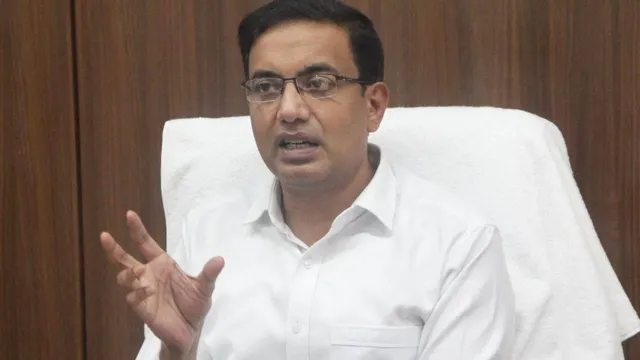- By Akansha Pandey
- Sat, 04 Oct 2025 05:09 PM (IST)
- Source:Jagran News Network
The Noida Authority has approved the establishment of its first Integrated Solid Waste Management Plant, a 300-tonnes-per-day (TPD) facility designed to scientifically process waste into electricity, compost, and reusable water. The proposal was greenlit by Chairman Deepak Kumar during the Authority's board meeting on Friday.
Once operational, the plant will manage both wet and dry waste at a single location, with a future capacity to expand to 500 TPD.
Innovative Technology And Outputs
The state-of-the-art plant will utilise technology already in use in Goa. According to Noida Authority CEO Dr Lokesh M, the process involves:
- Separating organic materials from waste and converting them into methane-rich biogas to generate electricity.
- Recovering recyclable materials from dry waste.
- Producing 7-8 tonnes of high-quality compost daily.
- Treating leachate (liquid waste) in an on-site Sewage Treatment Plant (STP) to produce reusable water.
It is estimated that for every 100 tonnes of waste processed, approximately 2 tonnes of water can be produced, which will be utilised for construction, irrigation and car washing.
Addressing Noida's Waste Management Needs
The new plant is part of a broader strategy to manage Noida's current waste generation of 1,200 metric tonnes per day, which is projected to increase to 1,500 TPD. This initiative complements other ongoing projects, including a 600 TPD plant being set up in partnership with NTPC (which is 40 per cent complete) and a plan to establish six smaller decentralied plants with a combined capacity of 240 TPD.
Location And PPP Model
The plant is proposed for one of two locations: a 19.5-acre site in Sector-145 or a 16.66-acre site in Astoli, Greater Noida. The Authority also plans to purchase 30 acres of land for Rs 64 crore for waste management purposes.
Also Read: Delhi: History-Sheeter Crashes Virtual Court In Undergarments, Smoking And Drinking; Arrested
The project will be developed on a Public-Private Partnership (PPP) model. The operating company will cover the plant's expenses by selling the generated electricity, compost, and water. A Request for Proposal (RFP) for the project will be issued shortly.
Also Read: Muzaffarpur: CM Nitish Kumar Inaugurates 28 Panchayat Bhavans, Lays Foundation For 20 Marriage Halls

